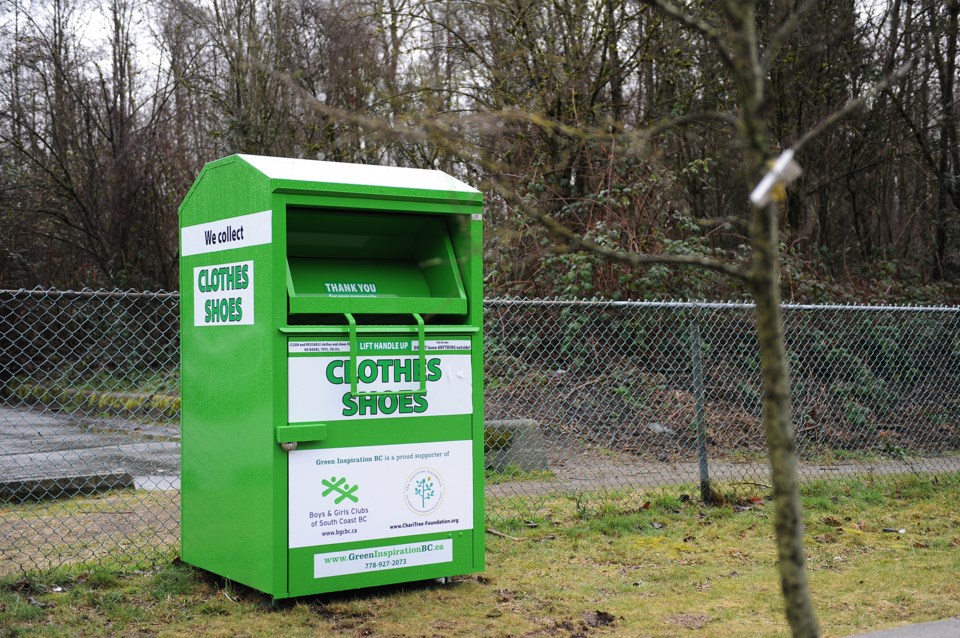I was surprised last weekend to see a charity clothing bin at the entrance to Everett Crowley Park.
I’m not sure how long it had been there, but I just noticed it along with a second new bin at the bottom of Jellicoe Street adjacent to the small garden area created by neighbourhood volunteers. (The bin on Jellicoe was gone by Tuesday afternoon.)
I was concerned because these bins often become convenient dumping grounds for people who can’t be bothered to go to the transfer station. I’ve seen discarded mattresses, couches and old computers left beside bins clearly dedicated to clothing or books.
And let’s be clear, these bins are big business. In 2011, I wrote several stories about charity bins and where those donated goods go, and for the most part they’re sold by American, for-profit corporations who pay charities a flat fee to use their name.
These charities allow their name to be used in exchange for money that’s used to fund worthwhile programs. In Vancouver, that means much of the clothing donated is sold for profit at a Value Village locations. The Value Village chain is owned by the Bellevue, Wash.-based, for profit corporation Savers Inc. Green Inspirations helps support the Boys and Girls Club of South Coast B.C. and the Charitree Foundation, which offers environmental programs for children.
Exceptions to that arrangement include the Salvation Army and B.C. Children’s Hospital Auxiliary, which jointly give away much of the donated clothing to needy residents and sell the rest locally to help pay for programs.
This week I read a CBC story from January 2012 which said these bins are so lucrative in Ontario that “cut throat turf wars” are breaking out. The article added that in 2010, Canadian exports of worn clothes were valued at $174 million. Ontario’s share of that market was more than $132 million with the majority of goods headed to African countries, India and Pakistan, which is exactly where clothing donated to Green Inspirations goes. (I was unable to get a provincial breakdown from the Recycling Council of B.C.)
I gave Green Inspirations B.C. a call because there’s very little corporate information or background on the company’s website.
Ivan Filipov, manager of the Burnaby location, told me there are also operations in the U.S., including in New Jersey and San Francisco. Filipov sounded sincere when he told me the company is dedicated to keeping used clothing out of landfills. In the case of Green Inspirations, a percentage of the donated clothing is sold at thrift stores, though Filipov was unsure which ones. According to the company’s website, none of the donated clothing is kept in Canada and instead 45 per cent (warmer clothes) is distributed in Eastern Europe, and about 40 per cent is shipped to Africa and Asia. Damaged items are sent to recycling plants.
In 2011, Peter Judd, general manager of engineering for the city, said there were about 250 bins scattered across the city and that staff was working on guidelines for placement. This week the city’s communications staff told me there are no guidelines in place regarding the bins. I also contacted the park board regarding the charity bin at Everett Crowley Park and was told Green Inspirations B.C. would be asked to remove it.



